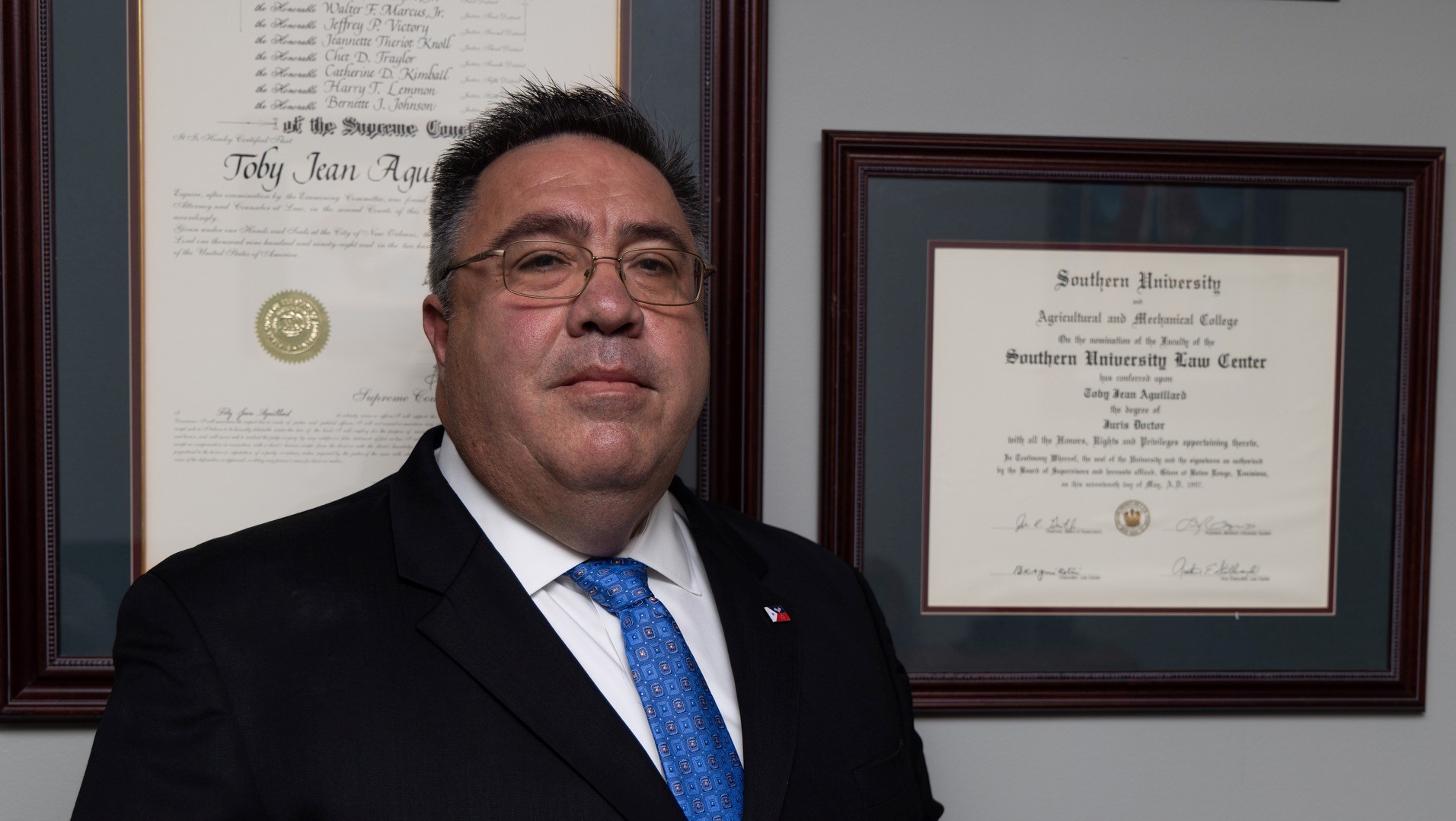Grand Lake, Louisiana, rests along Highway 384 between Lake Charles and the Gulf. Its fields of rice and livestock lay crisscrossed with canals and inlets. For generations, the neighbors of the Cameron Parish community have helped one another through harvest and hurricane. Toby Aguillard fondly likens Grand Lake, population under 3000, to a “Mayberry” with palmettos. “It was very much a close-knit quiet community where all of our parents took care of all of us,” he recalled. As the sixth of seven children, he grew up there working at his parents’ feed and hardware store, helping on his uncle’s rice farm, and participating in 4-H.
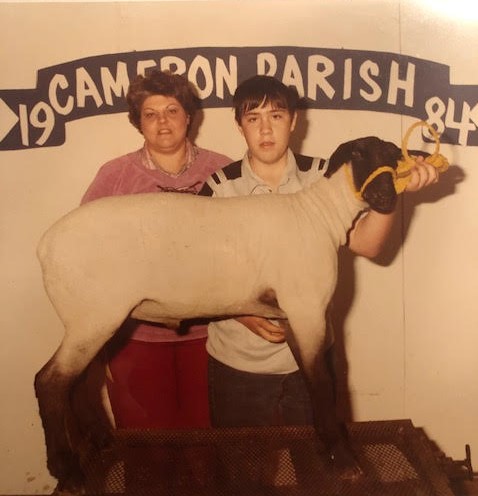
For much of his life, Aguillard’s future seemed destined to be in agriculture in Grand Lake. His gifts and interests, however, led him after high school to seek out a new community. The local priests inspired him to attend seminary. Aguillard saw them as “true men of God” who were “well-spoken and full of the Spirit”, and who exercised pastoral care over Grand Lake’s parishioners 24/7. Under this influence, he left Grand Lake and entered the Benedictine seminary at St. Joseph Seminary College in Covington, Louisiana.
St. Joseph’s was in many ways an even closer-knit community than Grand Lake. The Benedictine monastic tradition required all seminarians to serve the community daily. In addition to academics, the seminarians prepared the school’s meals, cleaned its buildings, and maintained the grounds. He recounts the disciplines of service and academics helped forge life-long friendships with fellow seminarians. Though he discerned before graduation that he may want to marry and to not enter the priesthood, Aguillard believes the formative experiences at St. Joseph built upon the community orientation he had brought from Grand Lake.
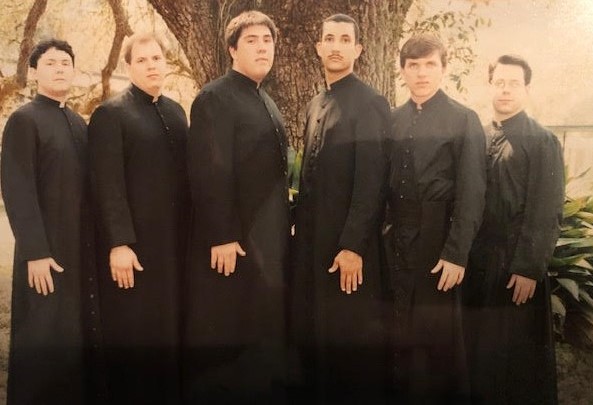
Upon graduating from St. Joseph’s in 1992, Aguillard returned to Grand Lake to become a deputy under storied Cameron Parish Sheriff Sono Savoie. “I fell in love with law enforcement because I really enjoyed the opportunity to be out in the field hands on actively helping people with whatever issues they were facing,” he recalls. As a deputy, he met local attorneys who encouraged him to go to law school. He attended and graduated from the Southern University Law Center in 1997.
Aguillard, with his law degree, once again returned to Grand Lake this time to work as an assistant district attorney. He handled juvenile prosecutions, served as director of the victims’ assistance program, assisted the parish school board with legal issues, and mixed in some private practice matters such as divorces, evictions, and wills. His next opportunity arose with then Louisiana Attorney General Richard Ieyoub’s office. He moved to Baton Rouge to become a criminal prosecutor dealing with insurance fraud and the high-tech crime unit.
While working in Baton Rouge, a trip to Breaux Bridge to meet up with some friends affirmed his decision to not become a priest. That night he met and danced with Rachel Vidrine to the music Walter Mouton and the Scott Playboys at La Poussiere dance hall. The couple later married in 2002 with two children, John Paul and Allie, following.
Aguillard’s tenure with the Attorney General’s office over the next few years included long hours and travel away from home. He recalls, “I was in Ruston, Louisiana, and had just placed the cuffs on an internet predator, and my wife called and said our son had just taken his first steps.” Realizing that he was spending too much time away from home, he returned to law enforcement with the Tangipahoa Parish Sheriff’s Department. His goal was to spend more time with his family and to one day become a sheriff or police chief.
As his law enforcement career progressed, the Aguillards targeted Lafayette as their destination community. Aguillard viewed Lafayette’s police department to be one of the best trained and resourced in the state, while Rachel had graduated from University of Louisiana. Both saw Lafayette to be culturally closer to their south Louisiana roots. He applied to be Lafayette’s chief of police but did not land the position during the Durel administration. However, Durel’s successor Mayor-President Joel Robideaux later selected Aguillard as police chief in 2016.
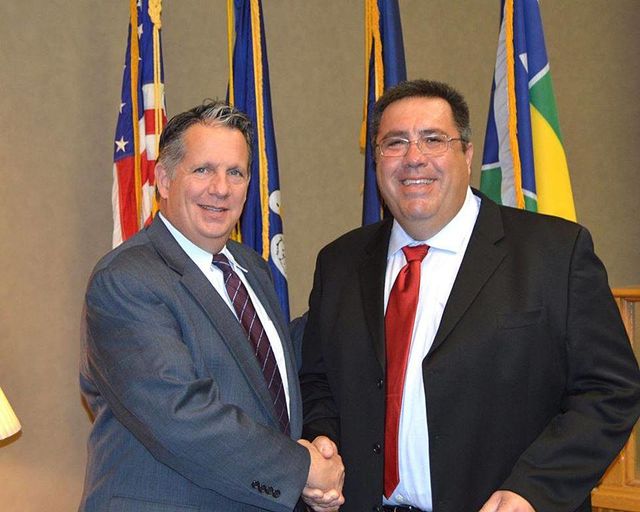
Aguillard loved his three years heading Lafayette’s police department. Seeking to build community, he formed a community relations committee of citizens to facilitate dialogue between the police department and residents. His goal was to improve relations through communication. He believes improvements resulted from the monthly committee meetings and monthly neighborhood walks by him and other officers. By going door to door, Aguillard’s conversations with citizens produced tips on criminal activity to which he then directed department resources.
Aguillard believes this door-to-door policing will help him as a judge. “It gave me a sense of where our community is and what the community’s needs are by having that personal one on one. I think I will recognize the needs of the community before the other candidates in this race as a result of this experience,” he explained.
Robideaux remains appreciative of Aguillard’s performance as police chief. He particularly recalls Aguillard’s handling of the shooting death of Officer Michael Middlebrook in 2017. Middlebrook was killed by a gunman when responding to a call at a convenience store. “You find out pretty quickly what kind of leadership you have in place when something that significant happens,” Robideaux recalls. “To Toby’s credit, I watched him do everything from counsel the family, to make sure that there was a fundraiser set up for him, to make sure that they were going to be taken care of going forward. His commitment to the family and doing what’s best for the community was just incredible during that whole process.”
After Robideaux decided to forego seeking a second term, Aguillard felt confident based upon his accomplishments and conversations with the candidates that he would be retained as chief in the next administration. Mayor-President Josh Guillory, however, after the election informed him that he would not be retained and requested his resignation. Aguillard attributes this to Guillory receiving “bad advice” and to local “politics”.
Aguillard, reflecting upon being forced out as chief, said, “It was an absolute low point and shock to me. But, one of the great things about being chief of police in Lafayette is it leads to other opportunities.” He recalls receiving offers for other opportunities right away. He chose from these to work in the private sector with Catholic Charities of Acadiana.
In looking back, Aguillard said, “I can tell you that going to work at Catholic Charities and spending time with the people who work among the homeless was a great way for me to rebound. It was a spiritual experience and one I will never forget. It was very healing because I was angry when I first left.” In being part of the teams who delivered food to the needy, he noted, “You quickly realize that your problems are miniscule compared to many in our community.”
Since Aguillard’s position with Catholic Charities prevented him from seeking political office, he returned to the practice of law with the goal of re-entering public service as an elected official. After Judge Odinet’s resignation from City Court, though he admits to never having considered running for judge before, he saw the vacancy as a way to “do some good” in serving Lafayette.
Aguillard believes he possesses the ability to be fair as a judge even though he has worked almost exclusively as a prosecutor and in law enforcement. “When I was chief, I had to balance what was right for the department, at the same time what was right for the officers, at the same time what was right for the City, and, of course, what was right for our citizens.” He cites his past arrests of police officers involved in internet child pornography and the firing of one officer for the use of excessive force as examples of his ability to impartially handle matters involving law enforcement. Aguillard explained, “In order to be a judge, you’ve got to be fair, you’ve got to be able to look at all sides, interpret what is going on, and act accordingly. It doesn’t matter what your personal views are, you’ve got to set that aside.”
Robideaux, his former boss and now campaign chairman, sees Aguillard’s personality well suited for the bench, “I think it’s important for a judge to have those qualities in that he’s compassionate, sincere, very likable, approachable, and very thoughtful. In his decision-making process, he’s not rash, he doesn’t react, he’s not overly emotional.”
Aguillard pragmatically knows that judicial remedies cannot correct all of the serious wrongs that people suffer. Nevertheless, if elected, he expresses hope that those who appear before him will see his efforts to recognize where wrongs occur and to deal with those wrongs as best as the law permits. Overall, he sees Lafayette’s judicial system to be “really good” though he acknowledges there are those who “feel disenfranchised and whose view is still not being heard”. He has characterized former Judge Odinet’s video scandal as both disappointing and hurtful. Yet, he still believes Lafayette is still in “pretty good shape” relative to some other communities.
If elected, Aguillard believes updating the twenty-one-year-old computer system currently being used in City Court is necessary. He foresees including features that would allow citizens to conduct business from home including the payment of tickets online. He believes this can be paid for by revenue that has already been set aside and by court fees.
Aguillard hopes as a judge to divert persons charged with misdemeanors from a path leading to felonies and as an opportunity to turn lives around. He is especially concerned about DWI’s. “When you are in court for your second offense DWI, I think the penalties are going to have to be a little more serious.” He wants to end the practice of multiple convictions for “first offense DWI’s” so that the enhanced 2nd DWI sentencing will deter such crimes and get resources to help those with substance abuse issues. For misdemeanor juvenile offenders, Aguillard hopes to include accountability for school attendance as part of sentencing in preventing recidivism. He also would like to integrate faith-based community groups when possible.
Aguillard views his candidacy as being attractive to members of both political parties. “I see myself as a conservative and I am running as a Republican but I don’t let that define me. Again, I go back to my service as chief. I was very concerned about the experiences of folks on the urban side of town, the places in Lafayette that are the most dangerous.” If elected, he recognizes the ethical limitations placed on judges in participating in party activities. “People are butting heads across America over political parties these days. Judicial candidates have to maintain a sense of impartiality and fairness.” When asked how his faith and scripture may inform and enable him to serve as judge, Aguillard replied, “I was fortunate to have grown up with the gift of faith, thanks to my parents, the Church and God’s amazing grace. I have always endeavored to live by the Word and the traditions of the Church.”
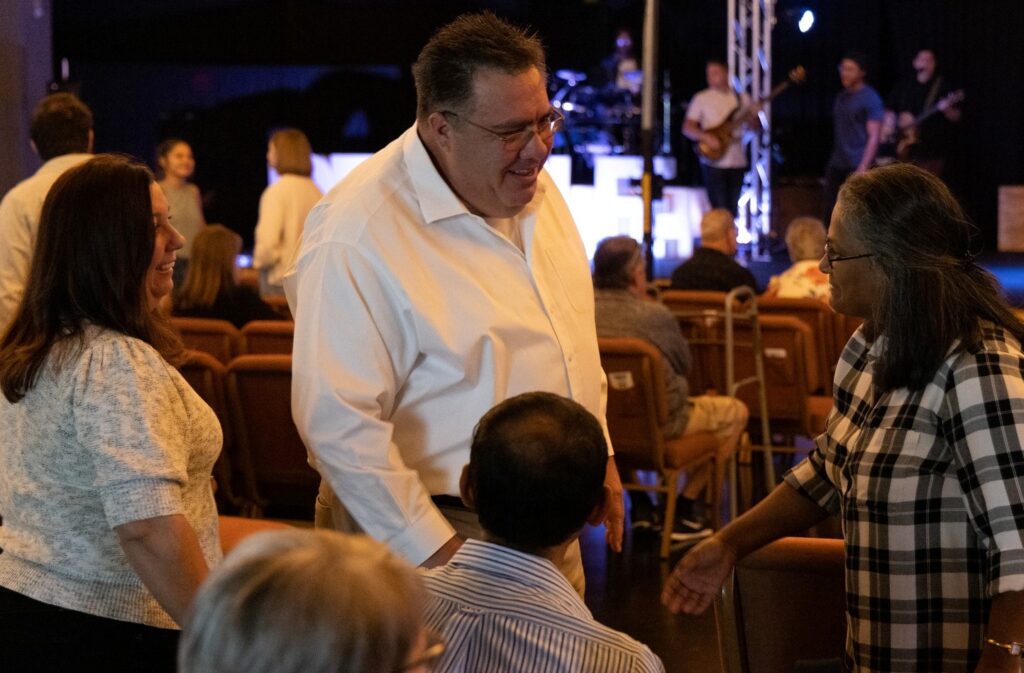
At first glance, having lived in Lafayette for only six years, an Aguillard victory may be seen as an upset. However, Aguillard has immersed himself into Lafayette’s community as police chief, with Catholic Charities, and through its politics. Aguillard can also point to his public and private service in Grand Lake, St. John’s seminary, and Tangipahoa, as a record upon which he believes Lafayette voters can trust him as judge.
St. Benedict of Nursia, the patron saint of Aguillard’s seminary, wrote “The Rule of St. Benedict” in 561 AD. For centuries it has served as guidelines for community and peace in Benedictine monasteries. More recently, author Rod Dreher’s bestseller “The Benedict Option” promoted the Benedictine model as a basis for all Christian communities in a post-Christian culture. St. Benedict’s motto “ora et labora”, translated to “pray and work”, summarizes his teaching. Aguillard, through prayer and work, hopes to bring both peace and community to Lafayette, “If elected City judge, I will aspire to be an instrument of God’s justice, righteousness, and compassion.”

